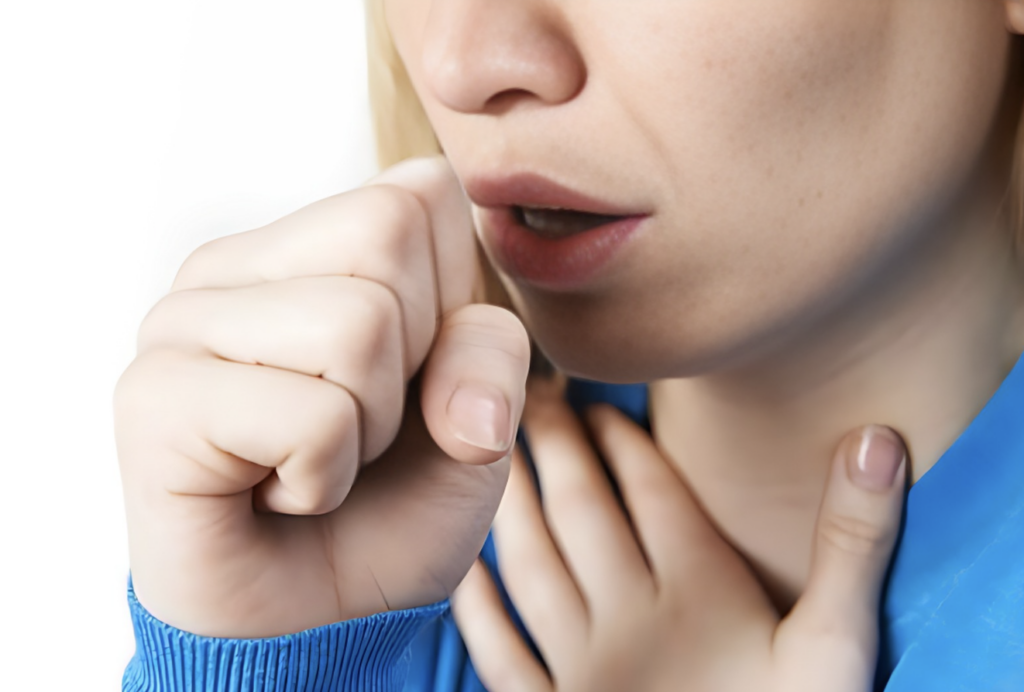Health Conditions
Whooping Cough: Unmasking the Silent Epidemic
Pertussis, sometimes known as whooping cough, is a severe respiratory infection caused by the bacteria Bordetella pertussis, which is extremely contagious.
This infectious disease affects people at all ages, but the most vulnerable victims are generally the youngest: infants who have not yet had a full vaccination. The repercussions of contracting whooping cough can be severe, ranging from pneumonia to convulsions and, ultimately, death.
Whooping cough is distinguished by its peculiar symptoms, which include a strong hacking cough punctuated by a distinctive “whoop” upon intake. It can last for weeks or months, frequently worsening at night. Sufferers may also experience vomiting or tiredness as a result of severe coughing fits.
Despite similarities to typical colds and influenza, whooping cough is distinguished by its persistent severity and increased dangers, especially for infants and young children.
Given the potential destruction, immunization emerges as the most effective weapon against whooping cough. The pertussis vaccination is widely recommended for people of all ages, with a particular emphasis on immunizing pregnant women to protect their newborns.
Furthermore, quick medical intervention when whooping cough is suspected is critical, not just for treatment but also for limiting disease spread throughout communities.

Symptoms and Diagnosis
Whooping cough, or pertussis, is a highly contagious respiratory disease caused by the bacteria Bordetella pertussis. It is distinguished by a persistent cough that can persist for weeks or even months. This section will go over the symptoms and the diagnostic process for whooping cough.
Early Symptoms
The initial symptoms of whooping cough are similar to those of a regular cold and can continue up to two weeks. Symptoms include a runny nose, a low-grade temperature (less than 100.4°F), and a moderate, intermittent cough. Whooping cough in babies can induce apnea (life-threatening pauses in breathing) and cyanosis (blue or purple skin).
Severe Symptoms
After the first two weeks, whooping cough symptoms develop and thick mucus builds in the airways, causing uncontrollable coughing. Coughing fits can be violent and persistent, and they may cause vomiting. In certain situations, coughing fits can be so severe that they result in a high-pitched “whoop” sound on the next breath of air. Severe coughing fits might also result in acute weariness.
Diagnosis Process
Diagnosing whooping cough can be difficult because the initial symptoms resemble those of a normal cold. A doctor may suspect whooping cough if a patient has a cough that lasts longer than two weeks, especially if it is severe and followed by vomiting.
A doctor may do a swab test to confirm the diagnosis by collecting a sample of mucus from the patient’s nose or throat. A blood test can also be done to detect the existence of antibodies against the Bordetella pertussis bacteria.
To summarize, whooping cough is a highly contagious respiratory disease that can result in violent coughing fits and other symptoms. Early symptoms include a runny nose, low-grade fever, and a moderate cough, while severe symptoms may include vomiting and a high-pitched “whoop” sound on the next breath of air. Diagnosing whooping cough can be difficult, but a doctor may use a swab or blood test to confirm the diagnosis.

Treatment and Prevention
Medical Treatment
If someone is diagnosed with whooping cough, their doctor may prescribe medications to help alleviate the symptoms and prevent the disease from spreading to others. Antibiotics are most effective when administered early in the illness, before coughing fits become severe. In severe situations, hospitalization may be required to offer breathing assistance and avoid consequences.
Home Care and Recovery
In addition to medical treatment, there are some things you can do at home to assist manage whooping cough symptoms and speed up recovery. This may include:
- Getting enough rest.
- Drinking drinks to avoid dehydration.
- Using a humidifier to release mucous and relieve coughing
- Avoiding irritants like smoke and dust.
- Eat modest, regular meals to lessen the chance of vomiting.
It is crucial to know that recovering from whooping cough might take several weeks, and coughing episodes may persist for several weeks after the treatment begins.
Vaccination and Prevention
The most effective way to avoid whooping cough is through immunization. The DTaP vaccine is recommended for all children, with doses administered at ages 2, 4, and 6 months, as well as 15-18 months and 4-6 years. The Tdap vaccination is indicated for adults, including pregnant women, who have not previously been immunized.
Vaccination not only protects the individual receiving the vaccine, but it also helps to prevent the disease from spreading to others. In the event of an outbreak, those who have been vaccinated may still become ill, but their symptoms are less severe and they are less likely to spread the disease to others.
In addition to immunization, other steps that can help reduce the spread of whooping cough are:
- Covering the lips and nose while coughing or sneezing.
- Washing hands frequently with soap and water.
- Avoiding intimate touch with unwell persons.
- Sickness-related absence from work or school
By taking these precautions, individuals can help protect themselves and others against whooping cough and other respiratory infections.

Risk Factors and Complications
High-Risk Groups
Whooping cough can affect people of any age, but it is more harmful for infants and small children who have not yet completed their vaccine schedule. Infants under the age of six months are especially vulnerable since their immune systems have not grown fully. Pregnant women are also at danger of catching the sickness and transmitting it to their babies. Immunocompromised people, such as those with HIV or undergoing chemotherapy, are also at a higher risk of suffering serious consequences.
Potential Complications
If left untreated, whooping cough can cause serious consequences, especially in newborns and young children. The condition can result in pneumonia, convulsions, brain damage, and even death. In certain situations, coughing bouts are severe enough to cause vomiting, weight loss, and tiredness. Complications for teenagers and adults may include cracked ribs, loss of bladder control, and excessive weariness.
It is vital to highlight that antibiotics are essential for treating whooping cough, particularly in high-risk individuals. Antibiotics can help alleviate the intensity of symptoms and keep the sickness from spreading to others. Vaccination is also the most effective approach to prevent whooping cough and keep high-risk groups from acquiring serious consequences.

Epidemiology and Public Health
Global Impact
Whooping cough, or pertussis, is a highly contagious respiratory disease caused by the bacteria Bordetella pertussis. According to the World Health Organization (WHO), more than 151,000 cases of pertussis were reported worldwide in 2018. The sickness is especially hazardous in infants and can be fatal in young children who have not received vaccinations.
In the United States, the Centers for Disease Control and Prevention (CDC) reported over 48,000 cases of pertussis in 2019. The CDC also notes that pertussis epidemics occur every three to five years, and that the disease’s incidence has been increasing since the 1980s.
Outbreak Control
The prevention of pertussis outbreaks is dependent on immunization. The CDC advises that children take five doses of the pertussis vaccine, beginning at two months of age and ending between four and six years of age. Adults who have not previously had the pertussis vaccine should receive one booster dose.
In addition to vaccination, the CDC recommends isolating people with pertussis until they have finished five days of antibiotic treatment. To prevent the disease from spreading, close contacts of pertussis patients should be given antibiotics as well.
Public health professionals play a vital role in managing pertussis outbreaks. They track the disease’s prevalence, identify outbreaks, and seek to ensure that those who have been exposed to pertussis receive proper treatment and vaccine. Public health professionals also try to educate the public on the importance of immunization and the symptoms of pertussis.
Conclusion
Finally, whooping cough’s secret epidemic highlights infectious diseases’ ongoing menace. Despite medical advances, this extremely contagious respiratory infection continues to harm people and communities worldwide, especially newborns and young children.
We now realize the significance of prevention and therapy after studying its insidious nature and fatal effects. Whooping cough requires our immediate attention and action due to its “whoop” cough and life-threatening repercussions.
Despite the grim reality, there is hope. Vaccination offers hope against whooping cough. This quiet epidemic can be stopped by universal immunization and quick medical intervention, protecting future generations.
Let us be committed to public health as we face whooping cough. Education, lobbying, and collective action can reveal this silent epidemic and lead to a world without infectious diseases. We can defeat whooping cough and restore our communities to a healthier future.
Trusted Health, Wellness, and Medical advice for your well-being



